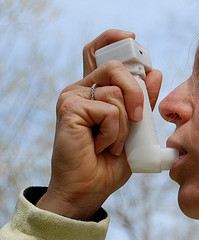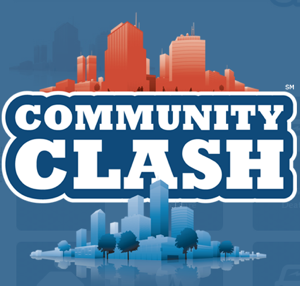Future Now
The IFTF Blog
5 Innovations Inspired by Liberation of Data
The air was electric. Voices buzzed in anticipation. I had never seen so many people in once place that were all excited about health data. I actually felt a bit giddy.
That was the scene at yesterday's Community Health Data Forum at the National Academy of Sciences in Washington, DC. Following the liberation of several government health datasets in March, app developers dashed to see what they could build in 12 short weeks to visualize and make sense of the data. They showcased their solutions yesterday, and applauded HHS Secretary Kathleen Sebelius' assertion that "government should be transparent, open, participatory."
Here are the top 5 innovations I saw:
1. AnalyzeThe.US
Palantir Technologies opened the session with a whirlwind demo of detailed visualizations. They looked at counties with the greatest child poverty and found a correlation with poor hospital coverage. Then they mined government documents to identify people who are involved in child health policy so they could inform them of the data findings to influence change.
You can check it out at AnalyzeThe.Us - Palantir has made their visualization technology open to the public, for use with the government datasets. If you want to use it with your own data, you'll need to license the software.
2. Network of Care for Healthy Communities
Sonoma County showed a powerful model they built to integrate government data into a community dashboard that gauges the health status of different communities based on metrics like obesity, public transportation, and vegetable consumption.
Diving into obesity, you can see trend data, progress towards the Healthy People 2010 goal for that metric, and - the coolest thing of all in my opinion - a list of Promising Practices from across the country that have worked for obesity. Each practice includes contact information, updated every three days, so government officials and individuals can take immediate action towards improving their community. Sonoma County is looking for funding to expand this model to other counties around the country.
3. Asthmapolis

What do you get when you cross asthma inhalers with GPS-enabled tracking sensors?
Dr. David Van Sickle invented this health-technology mashup to let asthma patients track where and when they use their inhalers. Called the Spiroscout, it's a lightweight attachment to standard inhalers that records the time and location of inhaler use, then uploads the data via USB to the Asthmapolis website.
Creating these "asthma maps" and sharing them with the greater asthma community can identify asthma hotspots and help patients and physicians improve the management of asthma.
Brilliant.
4. Google fusion tables
Roni Zeiger of Google Health showed how simple it is to use Google Labs' fusion tables feature to import multiple data sources, visualize them in charts and on maps, and share your visualizations. I was impressed with the ease, flow, and minimal number of clicks needed to create interesting results.
5. Community Clash Card Game

This is a fun one - and it was the only game offering presented, created by meyouhealth, a HealthWays company.
It's called Community Clash, and it got an amazing audience response. Here's how you play: You get 5 cards for your city showing metrics like how much people exercise, the smoking rate, and what percentage of people have high blood pressure. Your opponent gets 5 cards for their city.
Your goal is to choose which metrics you want to show that will present your city in the best light. Your opponent does the same for their city, and then you Clash. The healthiest city wins!
CommunityClash mashes up four datasets: community health data from HHS, Twitter data on relevant keywords, the Gallup/HealthWays Well-Being Index, and the HealthWays Well-Being Assessment. It's available as an online app and a physical card deck.
On top of all these amazing demos, two competitions were mentioned to spur further innovation in using health data for public good:
- the Apps for Healthy Kids Competition started by First Lady Michelle Obama is looking for apps that encourage kids or their parents to make healthy food choices and get moving. Deadline is June 30.
- the Health 2.0 Developer Challenge, announced yesterday, will be a series of "code-a-thons" to build apps to analyze the rich, liberated government health datasets. Details to be announced soon.
It's an exciting time to be working with health data!



